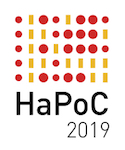|
|
|
Special IssueComputing in the world: A historical and philosophical analysis Call for Papers Guest Editor: Journal Editor:
Over the last half-century, computing has become ubiquitous in many parts of the world and in most if not all fields of endeavour. Almost no aspect of our lives remains unaffected. It is again time to take stock, but this time in such a way as to bring out and bring together differences and commonalities across the full range of disciplines. For this issue of Interdisciplinary Science Reviews (published by Taylor & Francis, https://www.tandfonline.com/toc/yisr20/current) the editors seek to publish articles in the physical, social and human sciences that demonstrate in their conjunction the genuinely meaningful interdisciplinarity of the digital machine. As a methodological tool, the computer is obviously interdisciplinary – its ubiquity in research of all kinds makes the case. However, it has quite different effects from one discipline to the next. By design, a computer requires input in discrete binary terms and so raises the question of how this requirement differentially affects each area of work. Furthermore, we may argue, the remarkable, proven adaptability of computers to widely varying problems, degrees of complexity and experimental, even imaginative application evokes tendencies and affects practices differentially across the disciplines in which they are used. Some disciplines have become largely computational, or grown a computational branch; others, for which the tradeoff is less attractive, are resistant. Why? Compare, for example, physics, biology, sociology, literary studies, the arts. Thus we welcome contributions from scholars wanting to participate in the debate concerning the effects of computers on their disciplines. We welcome articles with a particular focus on the relation between the conceptual and methodological framework of an area of expertise and the abstractions, analogies, encodings, models, simplifications and translations imposed by the data and operations of computing. Broad statements of what can and cannot be automated, and how automation affects research, are far less telling and useful than analyses based on examples of work in specific fields. We are looking for arguments backed up by details. Historical and philosophical approaches are of particular interest. Timeline Deadline for 300-word abstract submission: January 31st, 2020. All correspondence and submissions to: |


